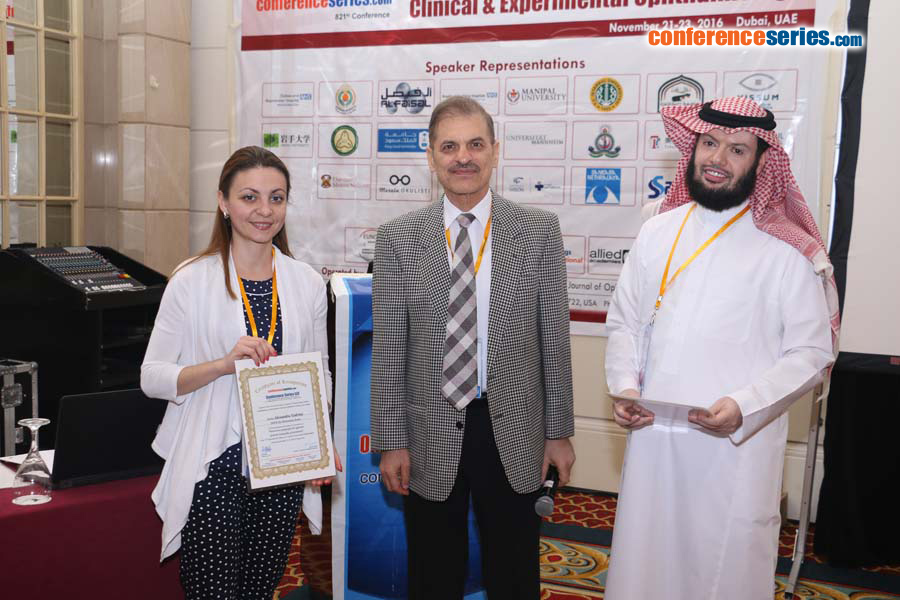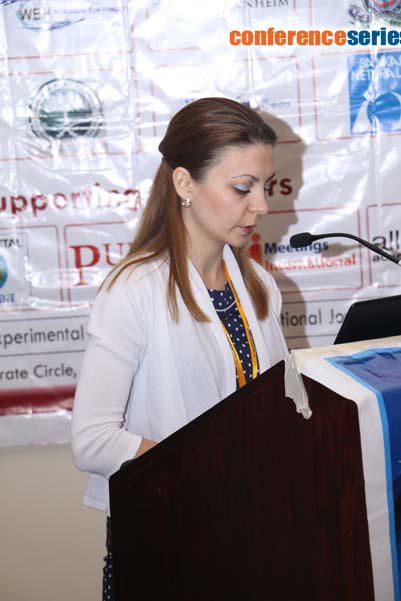
Alexandria Vydrina
MNTK Eye Microsurgery
Russia
Title: Fluorescein angiography for aggressive posterior retinopathy of prematurity
Biography
Biography: Alexandria Vydrina
Abstract
32 angiographic examinations of preterm infants with different stages AP-ROP were performed. Fluorescein angiography (FA) was performed by means of retinal pediatric digital video systems RetCam-3 with built-in angiographic unit. The duration of the FA procedure was 2-3 minutes on average. In all cases, the informed consent from parents was obtained. Interpretation of the FA data was conducted in accordance with developed by the author’s clinic-morphometric classification of ROP, providing for division of AP-ROP on different stages, including early clinical stage, manifestation stage and some other stages. No side effect from the injection of fluorescein was shown, in addition to staining of child's urine with yellow color. In fluorescein angiography in cases of AP-ROP at the early clinical stage reperfuse a wide area of the retina due to the complete absence of retinal vessels were identified. The border between vascularized and avascular retina was evident, unlike digital photos, where boundary signs are practically not detected. The absence of a foveal avascular zone was a characteristic feature. In fluorescein angiography in cases of AP-ROP at manifestation stage signs of severe ischemia and proliferative activity were seen foremost. The most important angiographic feature of AP-ROP was a massive loss of retinal capillary bed in the vascularized retina. The main advantage of the FA for AP-ROP is the possibility of detailed visualization of the retinal vasculature, which is not always clearly visible on the digital photographs, obtained using RetCam. It provides improved quality of monitoring and treatment of the patients.




